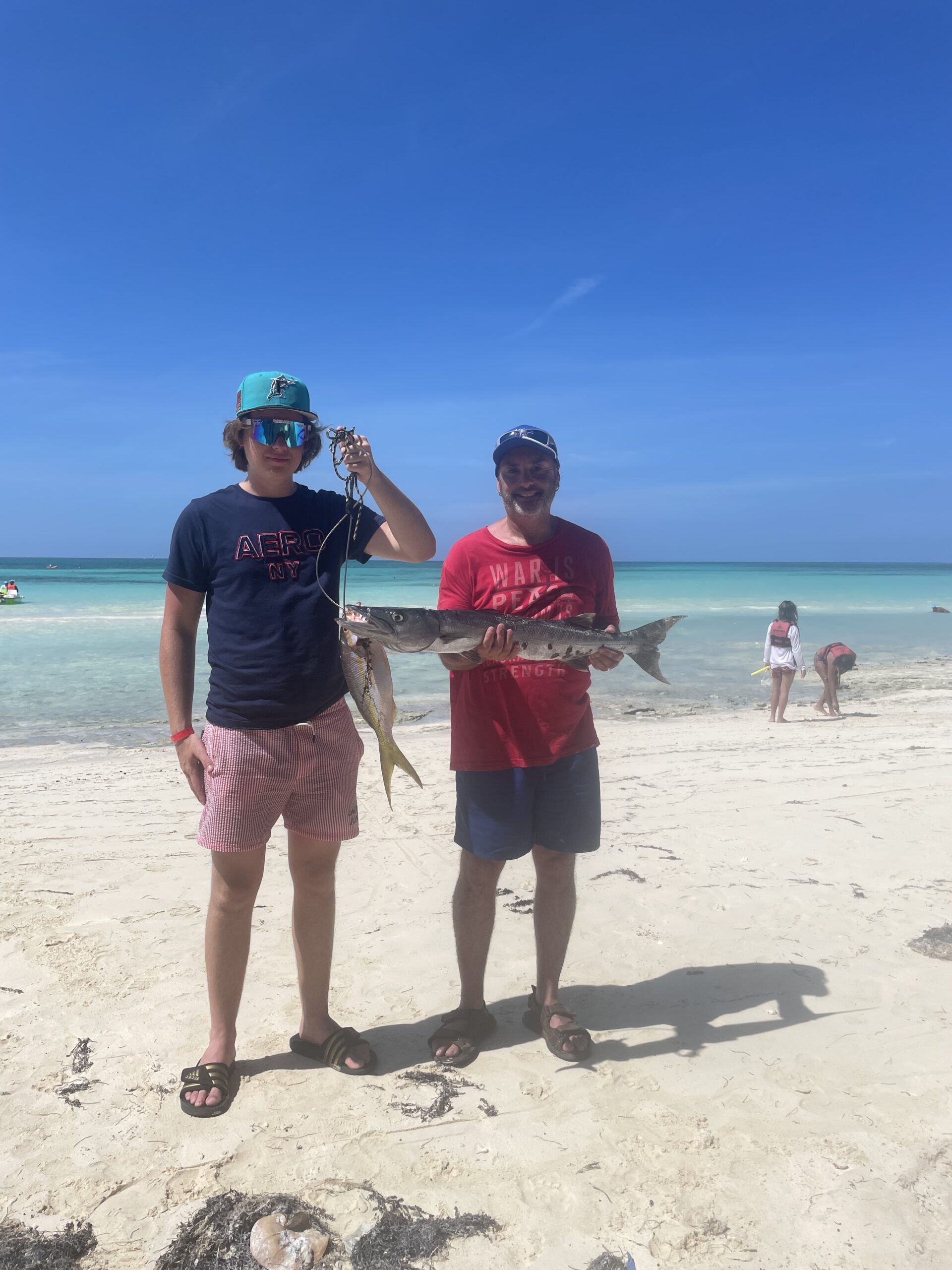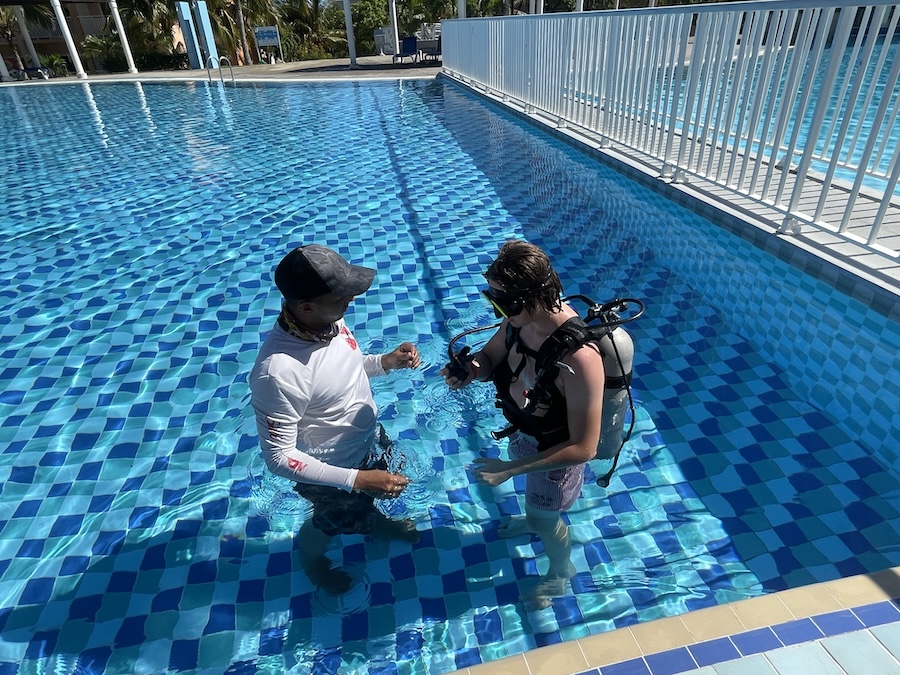If you travel extensively with your children, there are precautions you might take to keep them safe, especially in places far from home. A designated meeting place, code words, and even cell-tracking devices might help remove part of the worry of travelling to an unfamiliar destination. However, the risk can seem even greater when it comes to water sports on vacation. The more you know, the more rewarding the experience can be.
Bureaucracy
Teachers are very familiar with bureaucracies, from the board we work for, to the union representing us, to our local school system. It might be something you’ve never thought of before, but resorts also have layers of bureaucracy that guests have to wade through before they even reach the water. Resorts often promote on their websites the various activities included in your package and those available for a fee. However, these experiences are often at the direction of contractors outside the hotel.
For example, this summer, our resort said our package included peddle-boats, kayaks, catamarans, and windsurfing. However, these were coordinated by an outside organization, which the resort said can operate however they want because they are independent contractors. When it comes to the length of time out in the water, how many people can go out in a day, or if the organization will cancel all water sports for the afternoon, the resort has no jurisdiction.
Similarly, all-inclusive providers usually set up tables in the lobby to promote more extensive and costly water-sport adventures. If you’re not careful, these experiences can double the price of your vacation. For instance, a “free” scuba diving introduction in the resort pool turned into a $140 ocean experience. As it was my son’s first time, it seemed worth it, especially when having the opportunity to dive with nurse sharks. However, our scuba guide told us once we were there that diving with the sharks would be $25 extra, which probably should have been stated at the time of the initial payment.
 One way to bypass costly adventures is to arrange them through local residents. For example, a fishing boat experience through the provider was $355. For just my son and me, that seemed quite costly. They said we could have up to two other people on the boat to share the costs, but when asking families we met, they wanted to bring more than just two people. I asked one of the guests who had been there over fifty times for advice, and he suggested we approach independent boat owners who could take us for a fraction of the cost. For $100 (about three months’ salary for the locals), my son and
One way to bypass costly adventures is to arrange them through local residents. For example, a fishing boat experience through the provider was $355. For just my son and me, that seemed quite costly. They said we could have up to two other people on the boat to share the costs, but when asking families we met, they wanted to bring more than just two people. I asked one of the guests who had been there over fifty times for advice, and he suggested we approach independent boat owners who could take us for a fraction of the cost. For $100 (about three months’ salary for the locals), my son and
I secured a three-hour fishing trip, where we caught a ten-pound, four-foot barracuda—an experience we will never forget. Sometimes, a call to a local marina or a little Internet research before you go can save you hundreds of dollars.
Person on the Ground
Most resorts have customer service representatives and a social media director focused on making your experience the best it can be. Contacting our resort ahead of time, Rachel at Playa Paraiso was able to prepare for our specific needs.
One of the advantages of connecting before we left was that she could negotiate with the contractors in their language and provide specifics of what we wanted in a successful experience. So, if you have very young children or children with special needs, such preparations can be made in the weeks leading up to your adventure.
They can also help total some of the costs ahead of time with the all-inclusive provider, preventing an unwanted surprise by the final vacation tally. However, customer service will not usually connect you with locals outside the resort, as they are obligated to direct you to those already contracted by the hotel.
Building a relationship with the representative before you go can often get you extras, like a free room upgrade, late check-out or VIP extras. A good review helps to promote their brand, especially if they’ve gone the extra mile to make your vacation memorable.
Safety, Safety, Safety
 When experiencing island life, sometimes you have to be the person to regulate which water sports you feel are safe enough for your family. For instance, our resort had no age restrictions for peddle-boats or kayaks. When I asked if a ten-year-old could peddle out in the open ocean, the coordinator said: why not?
When experiencing island life, sometimes you have to be the person to regulate which water sports you feel are safe enough for your family. For instance, our resort had no age restrictions for peddle-boats or kayaks. When I asked if a ten-year-old could peddle out in the open ocean, the coordinator said: why not?
As well, some of the activities are not for the inexperienced. For example, wind-surfing requires a lot of lessons, not to mention strength, to be successful. Knowing that some activities need practice, you may be able to get classes or certifications at home before you go so you can enjoy the experience on the waves as a family.
If there are some experiences that you are unsure about, you can negotiate a safer alternative with your children. For example, when we went scuba diving, some families, my wife included, opted for the snorkelling package for $25. The excursion ensured a boat ride to deep open water and gear without the anxiety of wondering how your children are doing on the ocean floor.
Weather is also a significant factor in regulating your child’s safety. Monitoring the Coast Guard reports or the local weather app can help you plan your day, especially later in the summer during increased tropical storms or hurricanes. For example, we were told that if there were a storm, it would be late afternoon most days. This helped us arrange many of our water-sport activities during the morning and conclude by mid-afternoon.
If you haven’t frequented an all-inclusive resort in the past few decades, you might find that Jet Skis and Sea-Doos have largely been phased out. Again, an independent contractor not connected to your hotel may provide the service, but many resorts find the constant motorized noise past the beaches unsettling and are not willing to accept the liability that comes with a 70 mph craft near public swimming zones. Our resort had even abandoned parasailing due to the risks of sky-high adventures.
Overall, water sports can add to an ideal vacation experience. They may provide a first-ever memorable experience or help you bond as a family. If you do a little research, plan your budget and build relationships, you can ensure that your water sport activities will largely be clear sailing.
Special thanks to Rache Alvaremfl and Playa Paraiso.
ABOUT THE AUTHORS
Matthew DeJong
Matthew DeJong teaches English and Philosophy in the Peel District School Board and has been a travel writer for almost twenty years. His new short story series, The Jordan Stories, has been published by Nelson’s Edwin division and will appear in thousands of classrooms throughout Canada and around the world.
Ben DeJong
Ben DeJong is a grade 12 student at Heart Lake Secondary School in Brampton, ON. He is an avid athlete and world traveller. He plans to study Kinesiology at the University of Western Ontario.
This article is featured in Canadian Teacher Magazine’s Winter 2024 issue.









